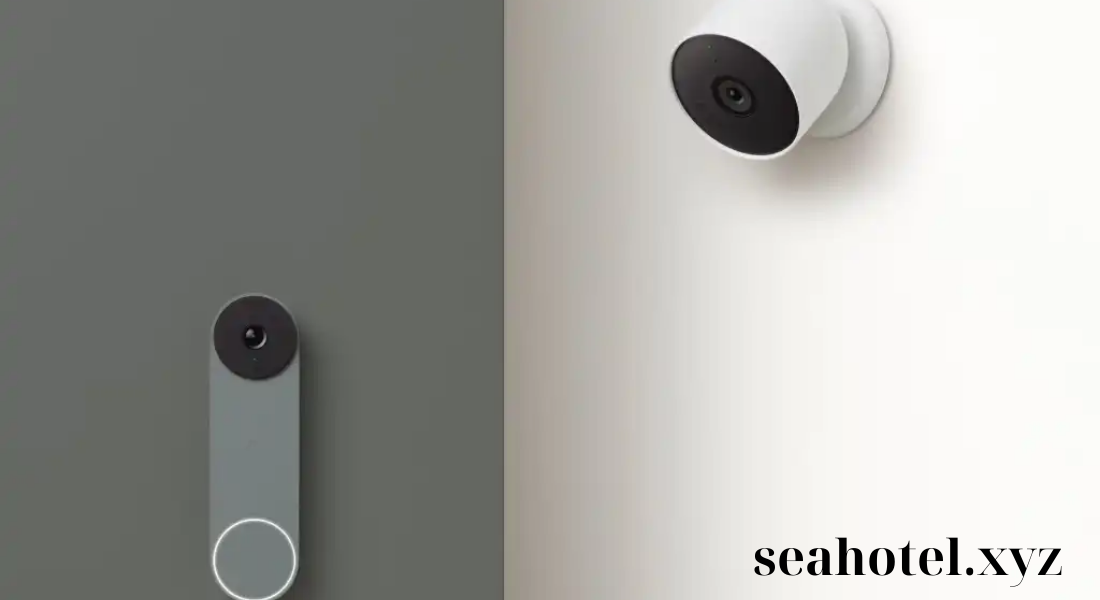Privacy and Security Considerations
With any security camera, homeowners naturally prioritize privacy. When installing cameras around your home, it’s essential to understand how the system manages and protects your data. Nest has earned a strong reputation for privacy, thanks to features that actively keep user data safe and ensure responsible usage.
Nest cameras include encryption to secure footage during Wi-Fi transmission, while Nest Aware provides secure cloud storage options for users preferring remote access. Users can directly control who accesses the camera feed and customize settings to protect their privacy. The Nest app also allows you to turn off the camera or microphone remotely, giving you full control over when and how it operates.
Additionally, Nest provides specific zone-based notifications, reducing concerns about capturing unnecessary footage of areas not essential for monitoring, like public walkways. This level of control ensures the camera monitors what matters to you while respecting the privacy of surrounding areas.
Comparison with Alternative Security Cameras
While Nest Cam provides many advantages, it’s helpful to compare it with similar products to find the best fit for your needs. Popular options include the Ring Stick Up Cam, Arlo Pro, and Wyze Cam. Each offers unique features, so here’s how Nest stands out:
- Ring Stick Up Cam – Known for excellent motion detection and compatibility with Amazon Alexa, Ring’s cameras offer wireless options but lack seamless integration with Google’s ecosystem like Nest. Nest often outperforms Ring in video quality, especially in low-light conditions.
- Arlo Pro – The Arlo Pro series offers high-quality, weather-resistant cameras with flexible mounting options and robust two-way audio features. However, the Arlo ecosystem generally costs more, while Nest’s compatibility with Google Home gives it an edge for those already invested in Google products.
- Wyze Cam – For those on a tighter budget, Wyze provides a compact, affordable solution. Although Wyze lacks some of the premium features and durability that Nest offers, it’s worth considering for indoor monitoring. Nest, however, remains more reliable for outdoor performance and offers a wider range of smart features.
While each of these cameras has strengths, Nest combines quality, ease of use, and integration, making it highly competitive, particularly for users in a Google-centric smart home setup.
Troubleshooting Common Issues
While Nest Cam is designed for smooth operation, users may encounter issues occasionally. Here are some common problems and solutions:
- Connection Issues – If connectivity problems arise, try restarting your router and check the camera’s proximity to the Wi-Fi signal. Ensuring your camera’s firmware is up-to-date can also help. If the problem persists, adjust the camera’s location or consider upgrading your router.
- Poor Video Quality – Limited bandwidth or Wi-Fi interference can affect video quality. Reducing the number of devices on your network can improve quality. Alternatively, you can adjust the resolution in the Nest app to ensure smoother streaming, particularly during peak usage.
- False Motion Alerts – Minimize false alarms by adjusting sensitivity settings in the Nest app. Setting up activity zones focuses alerts on areas where movement is most relevant, such as doorways or walkways.
- Battery Drain – For battery-powered models, prolonged recording drains power quickly. Use activity zones and set the camera to record only during specific hours to conserve battery life. Nest Aware offers features that help reduce unnecessary footage, which further conserves power.

How Nest Cam Enhances Daily Life Beyond Security
Beyond traditional security functions, the smart capabilities of this camera add practical value to everyday life. For pet owners, the two-way audio system allows them to interact with pets remotely, offering reassurance and companionship when away from home. With live video and audio streaming, owners can check in on their pets’ activities and well-being, reducing worries when at work or traveling. This feature also makes it easy to monitor and comfort anxious pets, helping both the owner and pet feel connected.
For families, this camera provides additional peace of mind by enabling parents to supervise children’s activities indoors or in the backyard. Whether parents are busy in another room or away for an errand, they can use real-time notifications and video feeds to ensure their kids are safe. The camera can serve as a reliable tool to observe playtime or nap schedules, adding a layer of convenience to family routines.
This versatile device is also useful for keeping track of package deliveries. With motion detection set to cover the front porch or entryway, users receive notifications as packages arrive,. Reducing the risk of missed or stolen deliveries. Homeowners can check the live feed to confirm delivery or speak directly to couriers if needed. Ensuring a safer, more efficient process for receiving parcels.
Future Prospects of Smart Home Security with Nest
Expanding on the future possibilities, the growth of smart home security with Nest shows how rapidly evolving technology is set to redefine home protection. Google’s development team consistently seeks to improve not just the security aspects but also the user experience. For example, upcoming software updates might provide even more precise AI-driven motion detection that could distinguish between subtle movements. Such as those caused by wind, and more intentional movements like a person approaching your property. This advancement could reduce the number of unnecessary alerts and increase the overall accuracy, allowing users to focus only on the most relevant notifications.
Beyond motion detection, Google plans to deepen the integration of its security devices with other smart products, creating a more seamless and interconnected home environment. Imagine a future where, if unusual activity is detected. Your smart lighting system could turn on automatically, adding another layer of security by deterring potential intruders. Your thermostat could even adjust to alert you if doors or windows were left open. Reducing the risk of break-ins while also promoting energy efficiency.
